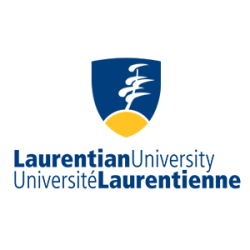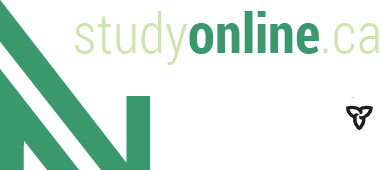Bachelor of Indigenous Social Work
Description
This accredited degree offers the knowledge, skills, and experience you need to work effectively with Indigenous and non-Indigenous communities. Develop and increase your knowledge and skills to work with First Nations peoples and all communities with two field education placements. Learn about Anishnaabe traditional teachings, theories and practices from Indigenous faculty and staff, endorsed by the School of Indigenous Relations.
This program is offered full-time on-campus and full-time online (Fall and Winter) The program requires two field education placements totalling 700 hours. The students in the Indigenous Social Work discipline will develop and increase their knowledge and skills to work with First Nations peoples and all communities that utilize a helping service. Indigenous Social Work Program has limited enrollment.
Interesting Facts:
- The program prepares students for the provincial social work registration and license (OCSWSSW)
- The program is offered on campus on a full-time basis
- The program is offered through the Laurentian Online on a full-time and part-time basis from September to April only. S
- Indigenous faculty and staff
Program Highlights:
- The four-year program leads to an Honours Bachelor of Indigenous Social Work
- Students gain a comprehensive understanding of social work practice
- Journal:
- Indigenous Social Work Journal (CALJ Endorsed)
- Published by the School of Indigenous Relations - Indigenous Social Work Journal, Laurentian University, Sudbury, Ontario. (Please note that this Journal was formerly called the "Native Social Work Journal").
- The Indigenous Social Work Journal is registered with the Canadian Association of Learned Journals. Cover artwork by Leland Bell.
- Volumes 1 - 10 of the Indigenous Social Work Journal can be found on the LUL Zone website
Seven Grandfather Teachings The Seven Gifts:
1. Nbwaakaawin To cherish knowledge is to know WISDOM.
2. Zaagidiwin To know LOVE is to know peace.
3. Mnaadendiwin To honour all of the Creation is to have RESPECT.
4. Aakde'win BRAVERY is to face the foe with integrity.
5. Gwekwaadziwin HONESTY is facing a situation is to be brave.
6. Dbadendizwin HUMILITY is to know yourself as a sacred part of the Creation.
7. Debwewin TRUTH is to know all of these things.
These are the teachings that were given to the Nishnaabe Nation.
"Remember that the other Nations were given teachings that are slightly different from these. But in all the teachings of different Nations, there are commonalities. This sameness refers to the basic Truth that interweaves all-natural ways of living." (Benton-Banai, 1988)
The Medicine Wheel is an ancient symbol used to express and represent the meaning of the Four Sacred Directions which encompass all of the teachings of the Seven Grandfathers so that we can live in Harmony with all of the Creation.
In addition to the Seven Grandfather Teachings, the Canadian Association of Social Work Educators Code of Ethics and Obligations, the International Federation of Social Work Declaration of Ethical Principles of Social Work, and the Ontario College of Social Workers and Social Services Workers Code of Ethics apply.
BSW Indigenous Social Work (ALSO OFFERED ONLINE) (120 credits)
Program of Study:
First Year:
- ISWK 1006E Introduction to Indigenous Social Welfare*
- ISWK 1007E Introduction to Indigenous Social Welfare and Social Work and Practice*
- PSYC 1105E Introduction to Psychology
- SOCI 1015E Understanding Society
12 Credit Electives in Arts
Second Year:
- ISWK 2006E Indigenous Social Welfare Issues*
- ISWK 2007E Applied Indigenous Social Work Issues*
- ISWK 2315E The Helping Relationship in Indigenous Social Work*
- 18 Credit Electives in Arts
Third Year:
- ISWK 3305E Indigenous Theories and Perspectives in Social Work Practice I*
- ISWK 3555E Indigenous Social Work Research Methodologies
- ISWK 3605E Field Instruction I
12 Credit Electives in Arts
Fourth Year:
ISWK 4216E Programs and Issues in Indigenous Social Work Practice
ISWK 4256E Cultural Specific Helping with Indigenous Peoples
ISWK 4305E Indigenous Theories and Perspectives for Social Work Practice II*
ISWK 4507E Indigenous Social Work: Groups and Families
ISWK 4517E Management and Administration in Indigenous Social Work
ISWK 4605E Field Instruction II And Year 4 ISWK Electives:
Any 2 (3 cr) total of 6 credits
ISWK 4406E Colonizing/Decolonizing Issues of Violence in Indigenous Communities
ISWK 4416E Conflict Resolution and Peacemaking in Indigenous Social Work Practice
ISWK 4426E Mental Health Policy and Services - The Indigenous Context
ISWK 4436E Addressing Grief and Loss in Indigenous Social Work Practice
* minimum grade of B is required
Student cannot retain more than 48 first-year credits in order to graduate.
Students can use the following plan of study to help them navigate the program.
Note: Check with the institution regarding start/end dates, prices, and delivery method. These may vary according to the program, section, and/or semester.
Related Courses
- Applied Indigenous Social Work Issues
- Culture-Specific Helping With Indigenous People
- Field Instruction I
- Field Instruction II
- Indigenous Social Welfare Issues
- Indigenous Social Work Research Methodologies
- Indigenous Social Work: Groups and Families
- Indigenous Theories and Perspectives for Social Work Practice II
- Indigenous Theories and Perspectives in Social Work Practice I
- Introduction to Indigenous Social Welfare
- Introduction to Indigenous Social Welfare and Social Work Practice
- Introduction to Psychology
- Management and Administration in Indigenous Social Work
- Programs and Issues in Indigenous Social Work Practice
- The Helping Relationship in Indigenous Social Work
- Understanding Society
Overview

- Institution: Laurentian University/Université Laurentienne
- Program type: Bachelors Degree
- Language: English
- Program Code: BISW
- Delivery Method: Fully Online/Distance
Disclaimer:
Check with the institution regarding start/end dates, prices, and delivery method. These may vary according to program, section, and/or semester.
Check with the institution regarding start/end dates, prices, and delivery method. These may vary according to program, section, and/or semester.
